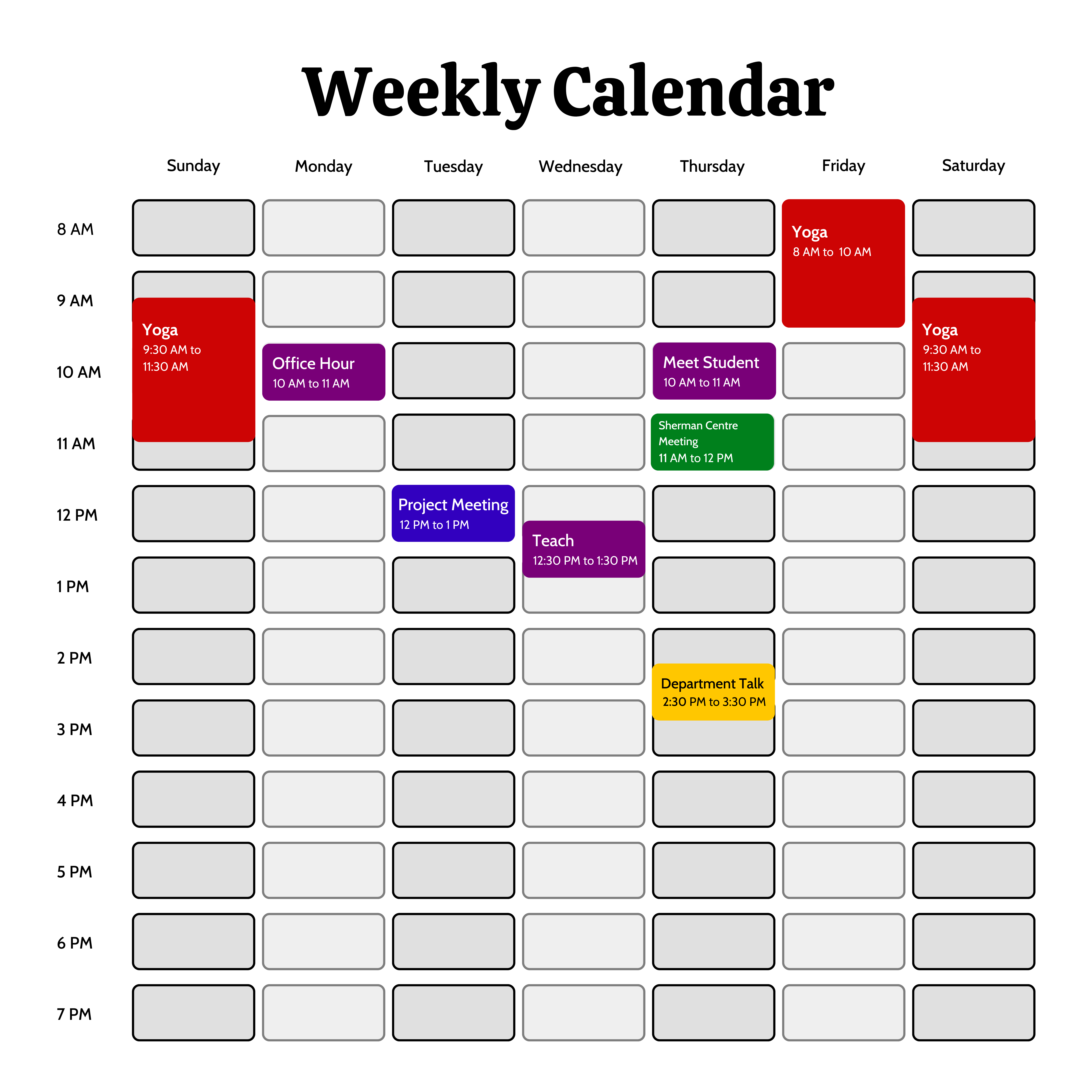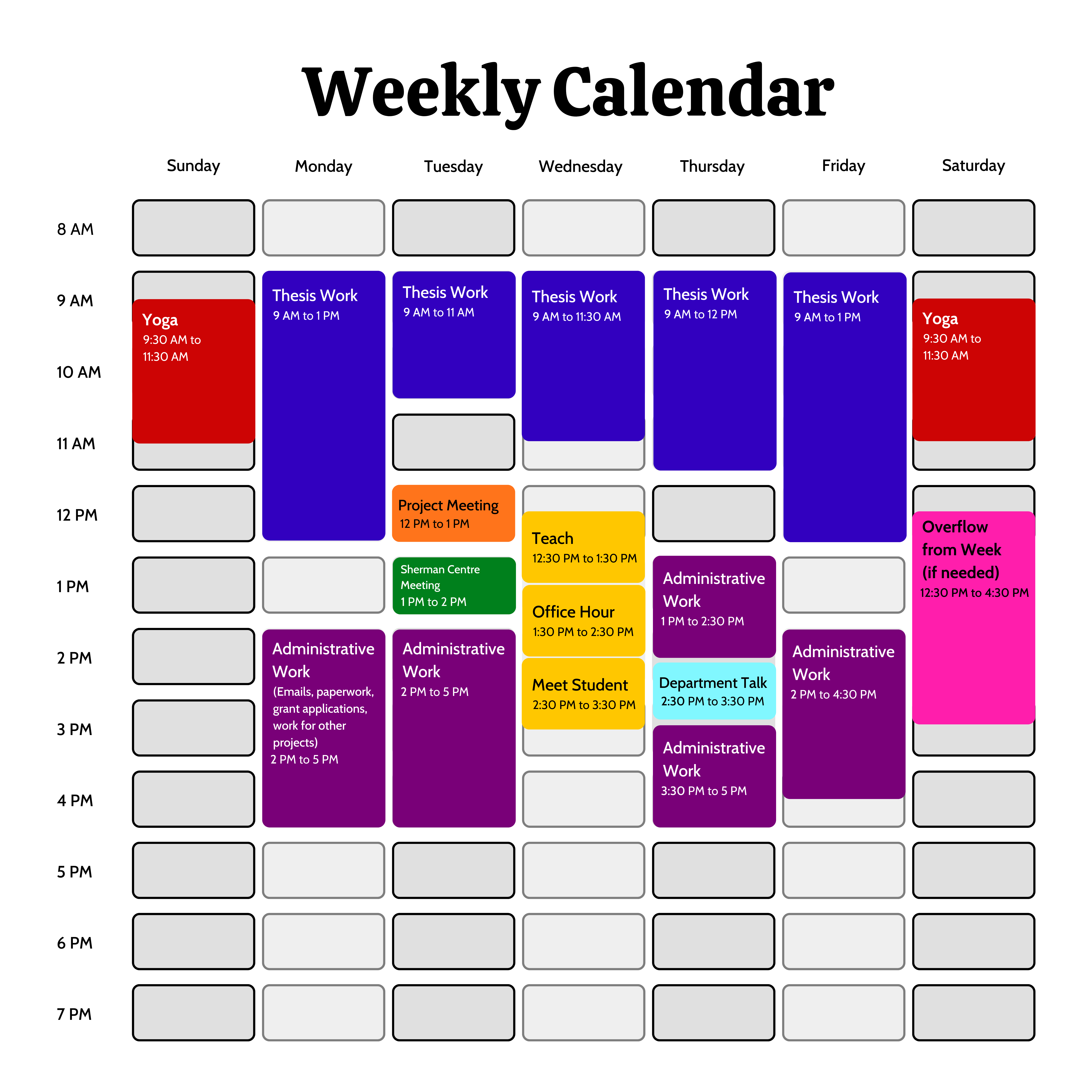6 Time Management: Working Efficiently
The key to working efficiently is to know what you need to do and know when you are best equipped to do it.
Finding out what time of day is best for you to do “brainwork” will allow you to schedule less intensively mental work for when you are already burnt out. For example, if you feel most productive between 8 a.m. and 1 p.m., schedule thesis work for the morning, and non-thesis work for the afternoons. This includes meetings, administrative work, answering emails, and even grading.
Try “blocking” your time: group like activities (meetings, teaching duties, scholarship applications, research, writing) so that thesis work is not constantly interrupted.
Let’s compare two example schedules. In the first iteration of the calendar, meetings are scattered and thesis work is not scheduled.

In the second iteration, thesis time is scheduled, as is time for “other” work, according to what the student knows about their own work habits. Teaching duties and meetings are also grouped together.


